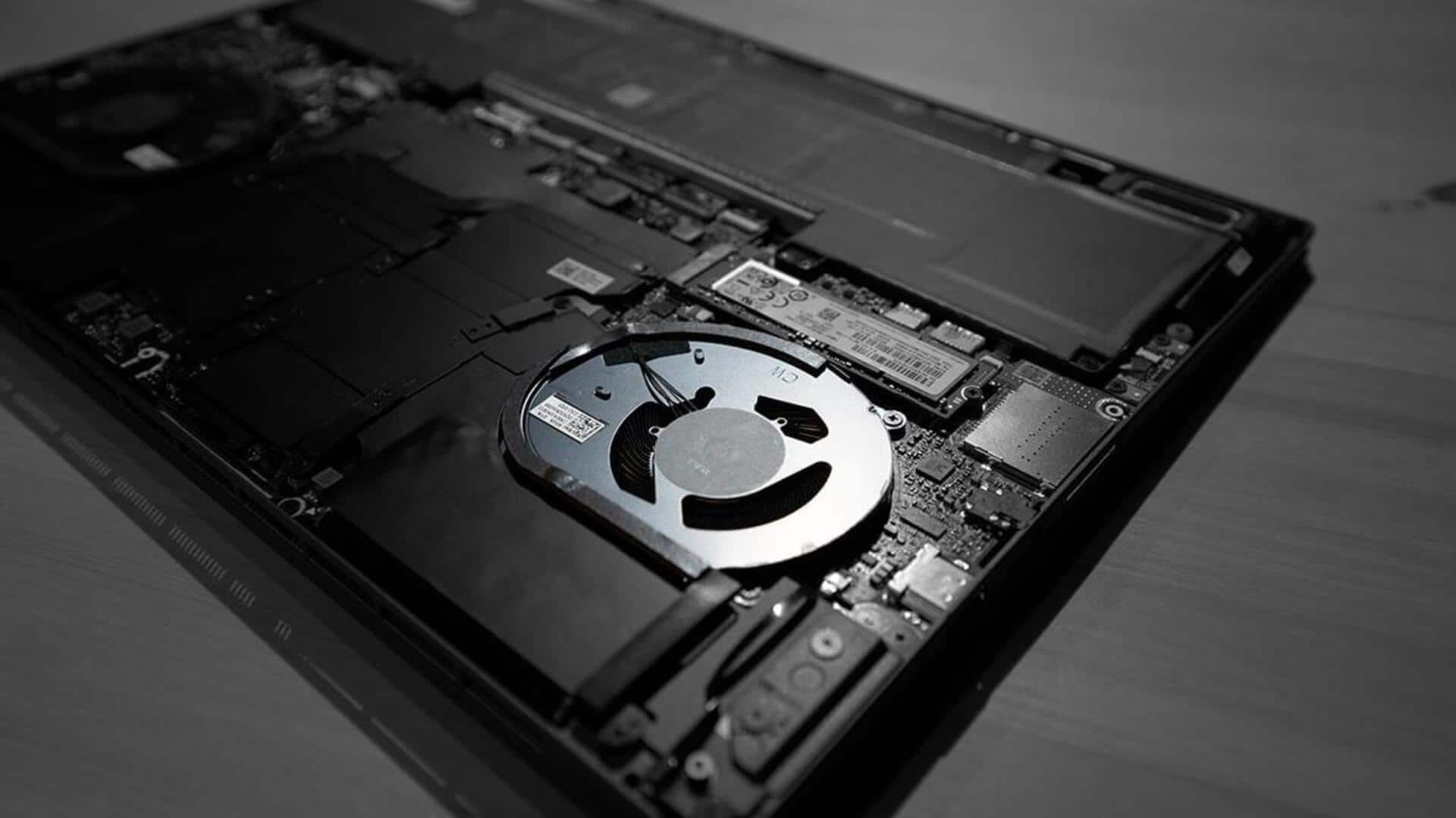
How to clean your laptop's cooling system
What's the story
Overheating significantly shortens a laptop's lifespan and degrades its performance. Dust accumulation, blocked vents, and outdated thermal paste are common culprits reducing cooling efficiency. Fortunately, regular cleaning can eliminate these issues, restoring your laptop to its smooth, cool-running glory. This guide provides easy-to-follow steps to maintain your laptop's cooling system.
Airflow check
Check for airflow blockage
Checking your laptop's air vents for blockages is super important. Dust, pet hair, or using it on a soft surface like a bed can block airflow, causing overheating. To make sure the vents are clear, check them visually every few weeks. A can of compressed air can easily blow out any debris, keeping the cool air flowing.
Fan cleaning
Clean the fans
Fans are crucial for cooling laptops by circulating air. Over time, dust buildup can hinder their performance. To clean, shut down and unplug the battery. Open the back using a screwdriver, but be cautious of static electricity. Spray compressed air to dislodge dust from fans. If fans are accessible without further disassembly, use a soft brush to remove stubborn dirt.
Thermal maintenance
Replace thermal paste
Thermal paste, a heat-conductive compound, is used between the CPU/GPU and their heat sinks to improve heat dissipation. But, over time, it can dry out or degrade, diminishing its effectiveness. Hence, it is recommended to replace this paste every two years to maintain optimal cooling performance. This involves carefully cleaning off the old paste using isopropyl alcohol and applying a fresh thermal compound following the manufacturer's directions.
Software updates
Update software regularly
Software, surprisingly, holds significant sway over your laptop's thermal state. Regularly updating your operating system is key. These updates frequently introduce optimizations for resource management and squash bugs that might send your CPU into overdrive, generating unnecessary heat. An updated BIOS is crucial too. It governs hardware operations, including those fans crucial for cooling. An outdated BIOS might not regulate fan speeds optimally, compromising cooling efficiency.